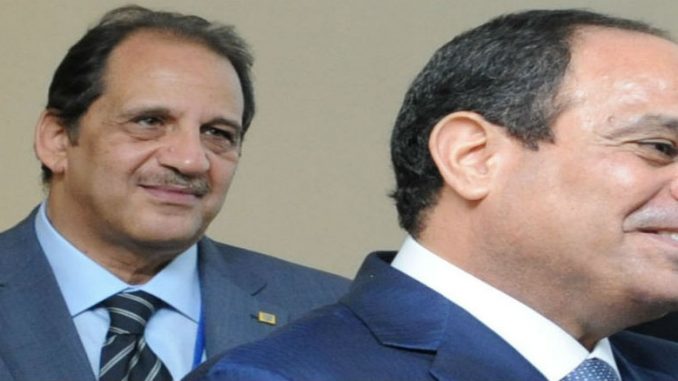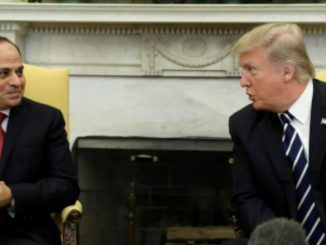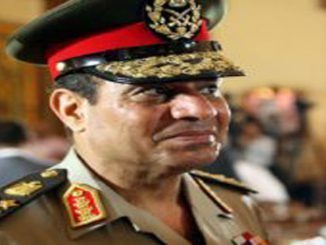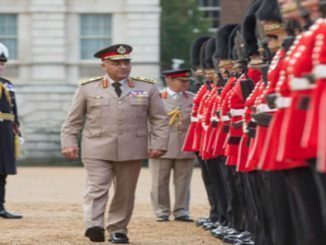
The New Khaleej news site has published an exclusive report based on an official document that Abbas Kamel, al-Sisi’s chief aide and head of his office, was among the founders of DMC, the Egyptian TV channels group, as well as member of its board of directors.
The official document unveiled that the capital of DMC TV channels amounted to US $30 billion (about 450 million Egyptian pounds). DMC TV Channels are funded by the Egyptian Armed Forces as known for media circles in the country.
The military regime in Egypt is adopting a strategy of presenting businessmen to be in the front line while in reality they are the Army’s media arms that achieve the interests of the military who remain behind the scenes.
One of those businessmen is Tarek Ismail who has never shown before any interest in media. Ismail launched DMC TV channels group, including 10 TV channels (general, news, drama, sport, entertainment and cinema channels).
The main target of Egypt’s military through these TV channels is to present the regime through a modern media framework to compete with iconic channels such as Al-Jazeera.
As a result, it seems that Egypt’s military institution isn’t only racing greedily to dominate several civilian economic sectors, but it is also rushing to control the media in Egypt.
Recently, Brig. Gen. Mohamed Samir, a former spokesman for the Egyptian armed forces, assumed the position of director general at Al-Asema Television Network, raising questions on the future of the Egyptian media.
On January 15 , Sherry Media Advertising Company said that it had officially appointed Samir as al-Asema’s director general. The company stressed that it is keen on providing professional media content, contributing to raising awareness in the community on various issues.
At that time, Egyptians criticized the appointment of Samir on the social media as they believed that it is a miserable attempt by the military regime authorities to nationalize the media, unify its message, and block any opposing voices against the government.
Since the military coup in 2013 led by Abdel Fattah al-Sisi against Egypt’s first democratically elected president Mohamed Morsi, the military started to expand its economic empire in an unprecedented way.
The Army widened its economic activity, including producing cement, supplying medical items to hospitals, as well as running the government’s smart-card system for the distribution of subsidized goods, establishing fish farms and manufacturing water meters.
Moreover, last year al-Sisi issued a law that allows the army to set up companies with the participation of domestic or foreign capital.” Armed forces vans roam the country selling cheap groceries and military retail outlets have popped up, while military agencies have attempted to procure basic commodities from international traders amid shortages,” said Reuters.
In this context, Al-Sisi tends to defend the military in every occasion, saying at a national youth conference held in Sharm el-Sheikh recently that, “In case you’re wondering how large the economy of the armed forces is in terms of GDP, I’m going to tell you so it’s clear: 1 to 1.5 %,” according to Reuters.
Reuters also said,” the size of the military, which produces everything from bottled water to macaroni, has long been a topic of speculation in Egypt but official comment on the scope of its economic activities is rare.”
Al-Sisi also claimed that the armed forces are not entering the economy to profit or compete with the private sector, and that their projects are subject to taxes and regulatory oversight.
He also added that the military would deliver 1,350 projects by 2018 but did not specify their exact nature.



